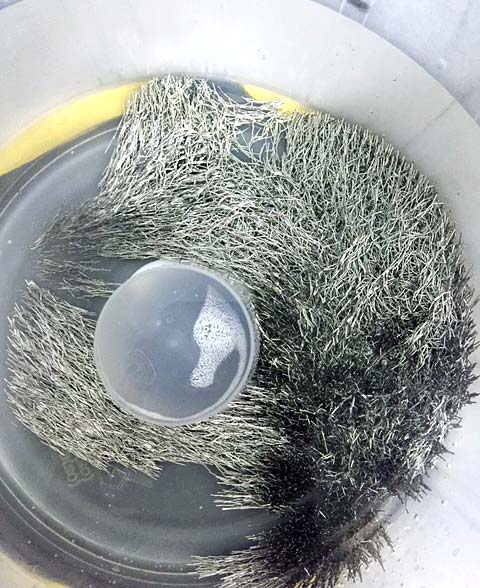Advantages of Magnetic Deburring


Manufacturers of small, non-ferrous precision parts are often faced with the challenge of deburring the part — the process of removing the raised edge or small piece of unwanted material that may remain attached to a part after a modification process. Deburring is especially important in the automotive, aerospace and electronics industries, where precision is critical and there is zero-tolerance for burr-ridden components.

Burrs are traditionally removed manually, but this process is labor-intensive and time-consuming. A more convenient method is magnetic deburring, which uses magnets and stainless steel media to polish and deburr the parts without affecting the tolerances or inflicting damage.
The bottom of the deburring machine’s plastic container is first covered with stainless steel pins, and the parts to be deburred along with the deburring solution are then added — the solution is a soap and water mixture, which helps to suspend the pins during the process.
The machine is then switched on. A magnetic disk in the machine below the container changes polarity constantly, agitating the pins in a whirlpool effect. This creates a ‘brushing’ action that polishes the parts and removes the burrs, but does not damage the part. Once the deburring cycle is complete, the parts are separated from the pins through a strainer.
One of the greatest advantages of magnetic burring is the time saved on the deburring process, as it enables rapid deburring of the parts. In addition, the magnetic process allows for the simultaneous deburring and polishing of the parts, and since the media used are stainless steel pins, there is no residue left behind as in other deburring processes — secondary cleaning of the part is therefore not necessary. The tiny stainless steel pins used in the process can also reach areas of the part that other tumbling media (such as rocks) cannot, and magnetic action ensures that the pins do not become lodged in the part as rocks/stones sometimes do. Magnetic deburring also enables the deburring of areas such as blind, through- and cross-holes or threaded features that traditional deburring processes cannot accomplish.
